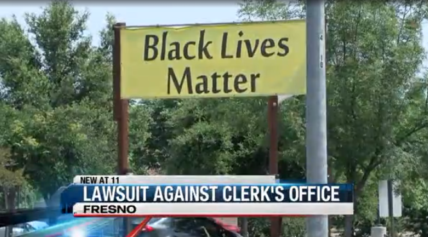The American Civil Liberties Union is accusing financial services giant Morgan Stanley of fueling the production of risky, expensive loans that targeted African-American borrowers.
In the lawsuit, expected to be filed on Monday, the A.C.L.U. claims that Morgan Stanley is culpable for predatory loans made through the New Century Financial Corporation because the investment bank lent billions of dollars to New Century, a now-defunct subprime lender, and pressured it to make troublesome loans to African-American borrowers who could not afford them.
Morgan Stanley packaged the loans made by New Century and sold them to pension funds and other large investors. But, the lawsuit claims, the bank went beyond the traditional role of an investment bank by requiring that the mortgage company churn out the wildly profitable loans that came with “dangerous” characteristics.
For example, the lawsuit says, many of the loans ultimately sold to investors were “stated income” loans, in which borrowers could estimate their incomes without having to provide supporting documentation.
The action against Morgan Stanley follows a series of lawsuits brought by investors and federal and state officials against some of the nation’s largest banks. The A.C.L.U. suit, which is to be filed in federal court in New York and will seek class-action certification, claims that Morgan Stanley violated the Fair Housing Act and the Equal Credit Opportunity Act.
Rubbie McCoy, one of the five named plaintiffs in the lawsuit, took out a loan from New Century in 2006 with an adjustable rate starting at 12.14 percent, which could not fall below 10.75 percent. It came with “excessive fees and costs,” the suit said.
Ms. McCoy, a single mother, said she could not afford the payments, but the broker told her to “fudge” her income, the suit says. Now, she is fighting to save the Detroit home that she shares with her four children.
“Having a house was a way to keep my kids grounded,” Ms. McCoy said.
Morgan Stanley declined to comment on Sunday.
Last week, in an action against another bank, federal prosecutors in New York sued Wells Fargo, the country’s largest mortgage lender, saying it made “reckless” loans for more than a decade that soured, and subsequently left them to the government’s insurance program to pay.
In its first salvo earlier this month, the federal mortgage task force formed by the Justice Department sued Bear Stearns & Company, currently a unit of JPMorgan Chase, accusing the company of widespread misconduct during the heady days of the housing boom in the packaging and sale of mortgage securities.
Morgan Stanley came under fire from the Massachusetts attorney general in 2010 for its packaging of New Century mortgage loans. In June 2010, the bank agreed to pay $102 million to close an investigation by the attorney general, Martha Coakley, into questionable lending practices.
A former employee who testified in a separate civil suit against Morgan Stanley said that bank officials knowingly bought loans in which borrowers’ debt levels were more than 50 percent of their total income, according to the A.C.L.U. lawsuit.
The bank, according to one former employee, typically did not require New Century to conduct a second appraisal of homes, fearing that the second look would result in a lower assessment and prevent the loans from being securitized, the suit says.
While other investment banks purchased New Century’s loans, the lawsuit claims that Morgan Stanley “purchased a greater proportion of New Century’s loans than any other institution.”
The Justice Department has accused two major banks of discriminating against black and Hispanic customers. A settlement in one case was announced in July, when Wells Fargo agreed to pay $175 million to settle claims that the bank steered roughly 34,000 minority customers into subprime mortgages, even though they could have qualified for mortgage with lower fees and less risk.
The largest settlement of a residential fair-lending violation came last December, when Bank of America agreed to pay the Justice Department $335 million to put to rest claims that its Countrywide unit discriminated against minority borrowers.

